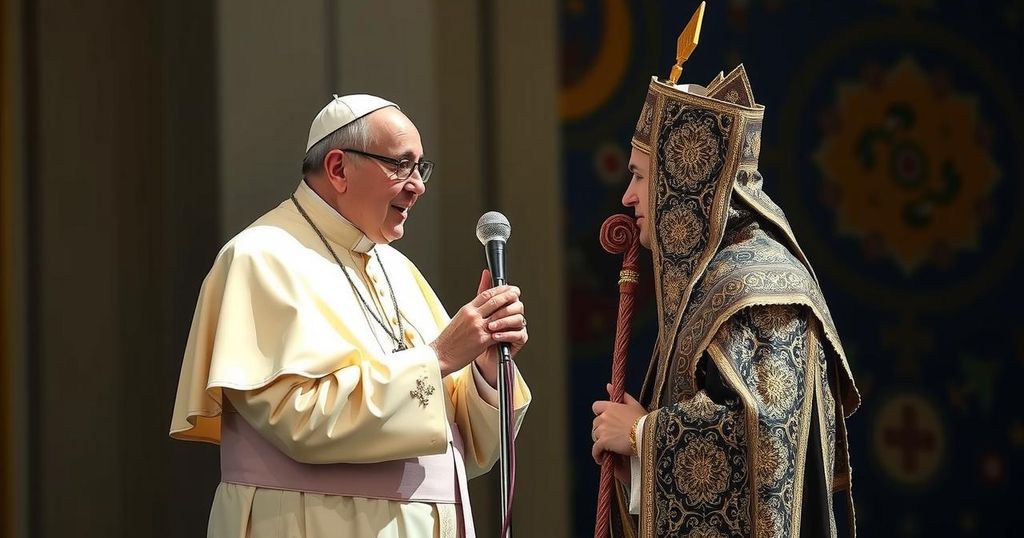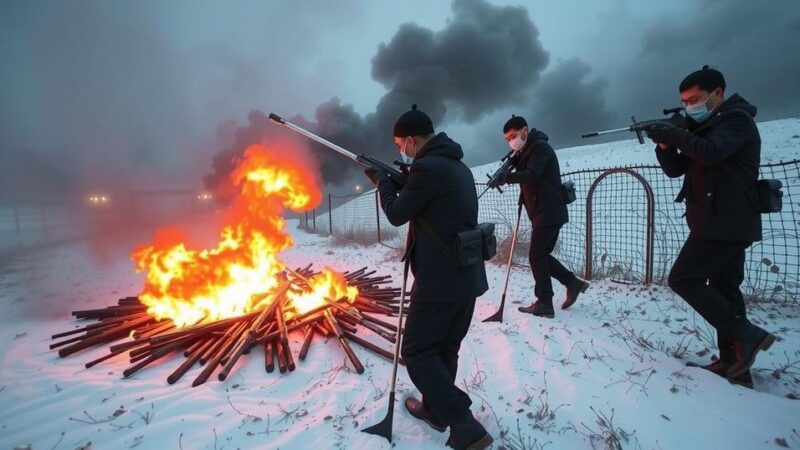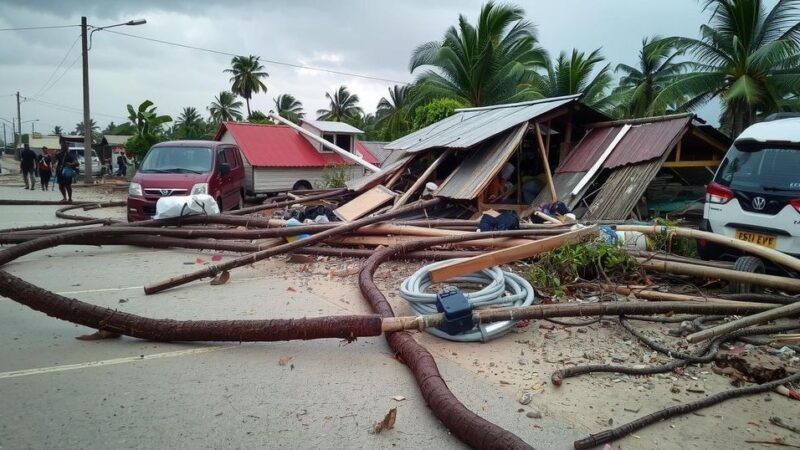Pope Francis’ vision for global solidarity and interreligious dialogue finds a supportive partner in Kazakhstan, which hosted an interreligious congress exemplifying commitment to these ideals. As a culturally diverse nation, Kazakhstan emphasizes peaceful coexistence and collaboration with the Holy See to address regional unrest and promote dialogue among faiths. Recent initiatives and meetings illustrate the growing relationship that seeks to engage youth and foster a more peaceful world.
Pope Francis has consistently advocated for global solidarity, peace, and interreligious dialogue throughout his papacy. Despite the ongoing turbulence in the world, particularly in regions like the Middle East and Ukraine, his message resonates strongly in Kazakhstan, a predominantly Muslim nation. This engagement was exemplified on October 6, when interreligious leaders assembled in Astana underlining Kazakhstan’s dedication to the peaceful dialogue championed by the Pope. The gathering took place at the Palace of Peace and Reconciliation, symbolizing unity and human dignity. The participation of Vatican representatives underscores Kazakhstan’s emerging role as a partner in promoting peace through dialogue despite its small Catholic community.
Kazakhstan boasts a cultural and religious mosaic with 120 ethnic groups and nearly 4,000 religious organizations. Neighboring conflict zones creates a precarious environment for regional stability; thus, Kazakhstan views collaboration with the Holy See as pivotal. The nation’s commitment to a peaceful foreign policy is evidenced by its renunciation of nuclear weapons following its independence in 1991. In recent years, Kazakhstan has prioritized sustainable energy development while addressing political challenges through a consensus-driven approach aptly termed the “Listening State.” The relationship between Kazakhstan and the Holy See has deepened, marked by exchanges of goodwill and high-profile meetings aimed at fostering interreligious dialogue.
The recent interreligious congress, inspired by Pope St. John Paul II’s legacy, aims to build on 40 years of efforts fostering interfaith understanding. Pope Francis has actively participated in promoting dialogue, condemning extremism, and reaffirming commitment to peace—a vision embraced by leaders from various faiths. During these gatherings, emphasis has been placed on engaging youth in discussions to prepare the next generation for collaboration in addressing global challenges, such as poverty and injustice, through spiritual diplomacy.
Despite facing limitations in religious freedoms as governed by local laws, interest in establishing religious dialogue remains vibrant in Kazakhstan. Initiatives such as appointing goodwill ambassadors demonstrate a commitment to bridging divides and fostering cooperation. With a shared understanding of each other’s beliefs, faith leaders envision a future grounded in mutual respect and collaboration.
Kazakhstan has also shown intent to solidify its diplomatic presence in the Vatican by establishing a dedicated embassy for enhanced relations. Overall, the positive trajectory of Kazakhstan’s engagement with the Holy See serves as a testament to the efficacy of interreligious dialogue as a tool for promoting peace and fostering unity in a diverse world.
Pope Francis has long championed the principles of global solidarity and interfaith cooperation, seeking to counteract extremism and foster dialogue in the face of global tensions. Kazakhstan, strategically located at the crossroads of significant geopolitical fault lines, has embraced these ideals, seeking to play a constructive role in promoting peace through interreligious dialogue. This movement aligns with the country’s historical context, diverse population, and its leadership’s vision of stability and collaboration amidst regional challenges and the larger international climate of conflict. Kazakhstan’s approach has included a commitment to disarmament and a consistent effort to engage with various religious traditions, reflecting its multi-ethnic fabric and aspirations for peaceful coexistence. The Vatican’s involvement highlights the desire to forge stronger ties through dialogue, understanding, and mutual respect among faith communities.
The ongoing partnership between Kazakhstan and the Holy See illustrates the significance of interreligious dialogue in fostering peace and mutual understanding in a diverse world. The successful interreligious congress and the commitment to engage youth reflect a proactive strategy to build bridges and address global challenges through collaboration. As both entities continue to work towards harmonizing their efforts in promoting dialogue, the foundation for a more peaceful future is being laid—centered on the shared values of compassion, justice, and solidarity, echoing the core messages of Pope Francis’s papacy.
Original Source: www.ncregister.com







